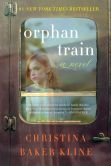
Review of Under a War-Torn Sky by L.M. Elliott
Overview from www.barnesandnoble.com: When Henry Forester is shot down during a bombing run over France,the World War II pilot finds himself trapped behind enemy lines. In constant danger of discovery by German soldiers, Henry begins a remarkable journey to freedom. Relying on the kindness of strangers, Henry moves from town to town—traveling by moonlight, never asking questions, or even the names of the people who help him along the way. Each day brings him closer to home, yet every step in enemy territory invites new dangers.
Even as Henry fights for his own life, he quickly grows to realize the peril that surrounds all of the French people, and to admire the courage of the freedom fighters who risk death to protect him. Suspenseful and achingly true, this critically-acclaimed and deeply beloved novel explores the heartbreak of war, the strength of human spirit, and one young man's struggle to protect the things he loves.
My Review:
File this one under a recommendation from a fellow
writer who was critiquing my own work. My story comes from the same era (World
War II) and involves speakers of a foreign language but that is where the
similarities end. Still I was intrigued.
This story is also in the YA or Young Adult genre
which includes pretty much any genre that you can find for adults, just written
for a younger audience. So in this case we have a YA Historical Fiction story.
Our main character is a young American pilot named
Henry. He comes from a farm somewhere in Virginia. The war of course is a
change of pace for him but what changes his life most dramatically when his
plane is hit and he parachutes out in the middle of Switzerland.
After being treated in the hospital he is given the
choice between spending the rest of the war in Switzerland or trying to escape
through France. He chooses the latter and that is when his new adventures
begin.
Dependent on the kindness of strangers, he must play
an unwitting game of hide and seek with the SS who would love nothing better
than torture and intimidate him into giving up those who helped him.
I enjoyed this story quite a bit. It was well-fleshed
out as were the characters in it which surprised me somewhat as those
characters were constantly changing as Henry tries to make his way North and
hopefully to England or the Allies.
Henry was my favorite and he carried the story well.
I can honestly say that reading this one was one of the few times where I could
remember a story that could not be filed under the heading of Christian fiction
and yet had such a positive and consistent character main character who claimed
himself as a Christian. I found it refreshing.
The only downside for me was the crazy amount of
dialogue that was mostly in French. The author did translate things that were
important but some pieces of dialogue were left untranslated. I was able to
figure out some of it based on my limited knowledge of French as well as my
Italian but sometimes trying to figure it out slowed me down.
On the other hand, it did give the dialogue a bit of
authenticity. I am just thinking that maybe it was a bit overdone.
As you might have guessed, it didn’t stop me from
reading it to completion. Ms. Elliot’s story is an exciting one that I would
have no hesitation in recommending to younger readers as well.
Contains:
some
war violence







